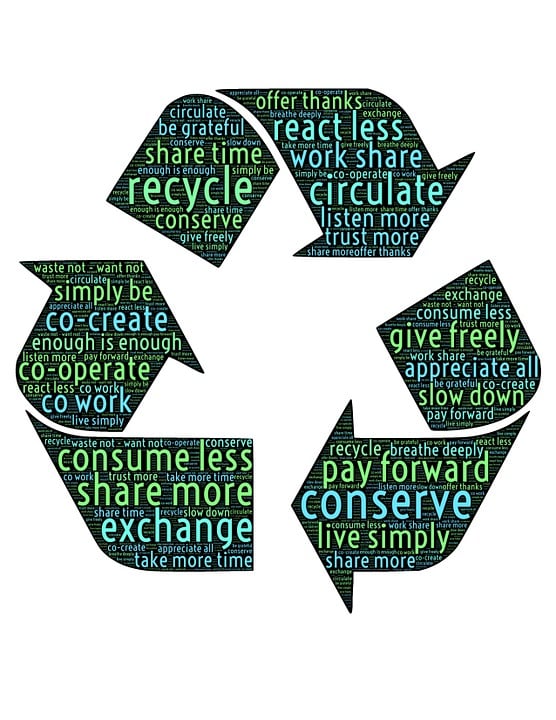Sustainability is a broad concept
Sustainability practices covers a wide range of social, economic, and environmental issues. It is an approach to life and development that seeks to meet the needs of the present without compromising the ability of future generations to meet their own needs. Sustainable development is an important component of sustainability, and involves meeting the needs of people in the present while at the same time conserving resources for future generations. Done right, long term is really like 10.000 generations. This can be achieved through the use of renewable energy sources, such as solar and wind power, as well as through the reduction of waste and the efficient use of resources. Here is a list of fifty pretty random thoughts about sustainability practices.
1. Sustainability is a limited ecological footprint.
2. Sustainability also focuses on preserving the environment and reducing the negative impacts of human activity. This includes reducing greenhouse gas emissions, preserving ecosystems, and protecting wildlife.
3. Sustainable practices also involve the protection of human rights, such as the right to a healthy environment, the right to food, and the right to a decent standard of living.
4. Sustainable practices also involve promoting healthier lifestyles, such as eating a balanced diet and engaging in regular physical activity. It is also important to promote sustainable consumption, which involves using resources efficiently and reducing the amount of waste produced.
5. Sustainable development also involves promoting social justice and economic equality. This can be achieved through the implementation of fair trade practices, the promotion of decent work, and the protection of human rights.

6. Sustainable practices also involve protecting the rights of indigenous peoples and promoting cultural diversity. This includes respecting the rights of traditional communities, protecting the environment, and promoting the use of traditional knowledge and practices.
7. Sustainable practices also involve promoting social justice and economic equality. This can be achieved through the implementation of fair trade practices, the promotion of decent work, and the protection of human rights.
8. Sustainability is an ongoing process and requires the commitment of individuals, businesses, and governments to create a more sustainable future. This includes investing in renewable energy sources, promoting sustainable consumption, protecting the environment, and promoting social justice and economic equality.
9. Sustainable practices can also be implemented at the local level. This includes the promotion of green spaces, the protection of water resources, the reduction of waste, and the promotion of sustainable agriculture.
10. Sustainability is an important concept that will help ensure the well–being of future generations. It is up to individuals, businesses, and governments to commit to sustainable practices in order to create a more sustainable future.
11. Sustainable practices can also involve promoting better health, such as reducing air pollution, improving access to clean water, and increasing access to healthcare.
12. Sustainable practices can also involve the promotion of sustainable tourism, such as the promotion of ecotourism and the promotion of responsible tourism.
13. Sustainable practices can also involve improving access to education, especially for vulnerable communities. This can be achieved through the provision of educational opportunities and the promotion of equality.
14. Sustainable practices can also involve protecting the rights of workers, such as the right to safe working conditions and the right to fair wages.
15. Sustainable practices can also involve reducing poverty and promoting economic growth. This can be achieved through the promotion of job creation, the provision of access to financial services, and the development of small businesses.
16. Sustainable practices can also involve the promotion of responsible consumption, such as the reduction of over–consumption and the promotion of the use of renewable resources.
17. Sustainable practices can also involve the protection of the rights of animals, such as the right to a healthy environment and the right to freedom from cruel treatment.
18: Sustainable practices can also involve the protection of the plants, such as the right to a healthy environment and the right to freedom from cruel treatment.
19. Sustainable transportation, such as the use of public transport and the promotion of the use of electric vehicles, bikes and blades.
20. Sustainable practices can also involve the promotion of renewable energy, such as the use of solar and wind power.
21. Sustainable practices can also involve the promotion of green buildings, such as the use of energy–efficient materials, less materials and the promotion of energy efficiency.
22. Sustainable practices involve the promotion of sustainable waste management, such as the third hand use, use of composting and the reduction of waste in general.
23. Sustainable practices can also involve the promotion of water conservation, such as rainwater harvesting, filtering and the use of greywater.
24. Sustainable practices can also involve the promotion of sustainable agriculture, such as the use of organic farming methods and the promotion of agroforestry.
25. Sustainable practices can also involve the protection of biodiversity, such as the protection of habitats and the promotion of species conservation.

26. Sustainable practices involve the promotion of sustainable forestry, such as the use of sustainable harvesting practices and the promotion of reforestation.
27. Sustainable practices can also involve the protection of marine ecosystems, such as the protection of coral reefs and the promotion of disposing of our current fishing practices.
28. Sustainable practices involve the promotion of green materials, such as the use of recycled materials, promotion of renewable materials and acknowledge efficient materials such as hemp.
29. Sustainable practices involve the promotion of green technologies, such as the use of renewable energy sources and the promotion of renewable energy storage.
30. Sustainable practices involve the promotion of sustainable cities, such as the promotion of green spaces and the promotion of walkable cities.
31. Sustainable practices involve the promotion of sustainable transportation, such as the use of innovative transport technologies such as zeppelin technology.
32. Sustainable practices involve the promotion of sustainable business practices, such as the promotion of ethical sourcing and the promotion of corporate social responsibility.
33. Sustainable practices involve the promotion of green energy, such as the use of decentralized power from solar, wind, water and thermal power.
34. Sustainable practices involve the promotion of green manufacturing, such as the use of renewable materials and the promotion of energy efficiency.
35. Sustainable practices involve the promotion of sustainable healthcare, such as the promotion of open source and responsible handling of public domain assets.
36. Sustainable practices involve the promotion of sustainable food production, such as the use of organic farming methods and the promotion of sustainable fishing practices.
37. Sustainable practices involve the promotion of sustainable water management, such as the use of rainwater harvesting and the use of water–efficient appliances.
38. Sustainable practices involve the promotion of sustainable energy use, such as the use of energy–efficient materials and the promotion of energy efficiency.
39. Sustainable practices involve the promotion of ecological monetary systems without involving a third party to handle the transaction. Digital “silver” coin so to speak.
40. Sustainable practices require sustainable government, cooperate and hedge financing is necessary to use ethical investment to ensure sustainable markets.

41. Sustainable practices involve the promotion of sustainable trade, such as the promotion of fair trade and the promotion of social and environmental standards.
42. Sustainable practices involve the promotion of sustainable development, such as the promotion of poverty reduction and the promotion of social justice.
43. Sustainable practices involve the promotion of sustainable land use, such as the promotion of natural untouched habitats.
44. Sustainable practices involve the promotion of sustainable energy systems, such as the use of renewable energy sources and the promotion of energy efficiency.
45. Sustainable practices involve the promotion of sustainable cities, such as the promotion of green spaces and the promotion of walkable cities.
46. Sustainable practices involve the promotion of sustainable communication, such as speaking your truth and acting accordingly.
47. Sustainable practices involve the promotion of sustainable energy systems by liberating regulations and removing barriers for innovation.
48. Sustainable practices can also involve the promotion of free speech and freedom to practice each and every esoteric belief.

49. Sustainability is breathing through your nose.
50. Sustainable practices involve the promotion of ideas for sustainable practices.